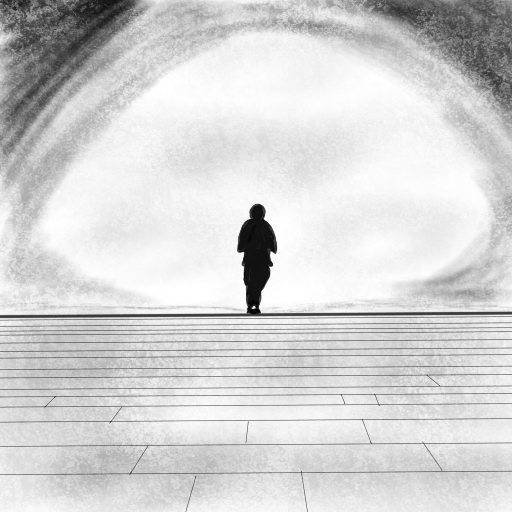A Life Complicated by Sleep
From the outside, it seems like exhaustion. Maybe laziness. Maybe just someone who needs a good night’s rest. But living with narcolepsy—and multiple sleep disorders—is an entirely different experience, one that most people struggle to even imagine. It’s more than sleepiness. It’s the fragmentation of wakefulness itself. It’s an invisible battle, fought daily in a world that operates on rigid expectations, schedules, and unwritten rules that I simply cannot keep up with.

The Struggle No One Sees
I’ve lived with symptoms for most of my life, but for years, I thought they were just part of the human experience. Random exhaustion, fleeting moments of muscular interference/s, the broad psychological effects, the inability to sustain energy the way others seemed to. It wasn’t obvious—until it was.
Narcolepsy and the symptom of Type 1, called Cataplexy, are relentless forces that shape everything: my emotions, my interactions, my very ability to exist in social spaces without the constant anxiety of what my body will or won’t allow me to do. Imagine your muscles failing you—not because of injury or illness—but because you laughed, because you felt joy, because an unexpected rush of emotion flicked an internal switch that shut pieces of the body to everything down. That’s cataplexy. That’s life reworked, learning how to navigate it, over and over, endless trial and error as the world turns, few dare to care.
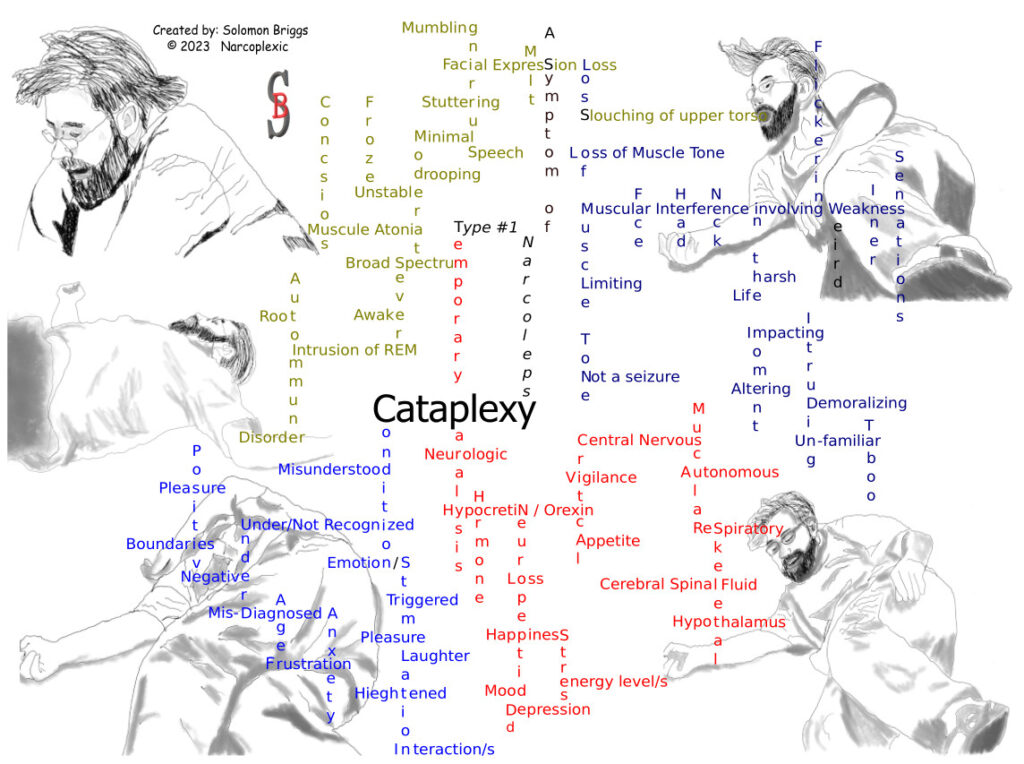
Society’s Grind and the Weight of Invisible Illness
We live in a culture of hustle, of pushing through, of “if you just work harder, you’ll get there.” But that world isn’t built for people like me. When rest isn’t restorative, when your nervous system itself fights against normal patterns of sleep, and well so much more, the demands of everyday life become heavier and heavier. The job market, friendships, relationships—each carries expectations that require stamina, consistency, and adaptability. But how do you adapt when your body resists your will which is rarely refreshed and/or restored?
The hardest part? People don’t understand. Not really. They hear “narcolepsy” and picture someone dramatically falling asleep mid-conversation. They don’t see the deeper toll—the mental weight, the loss of motivation, the forced isolation that becomes the only way to avoid the exhausting cycle of misunderstanding and judgment.
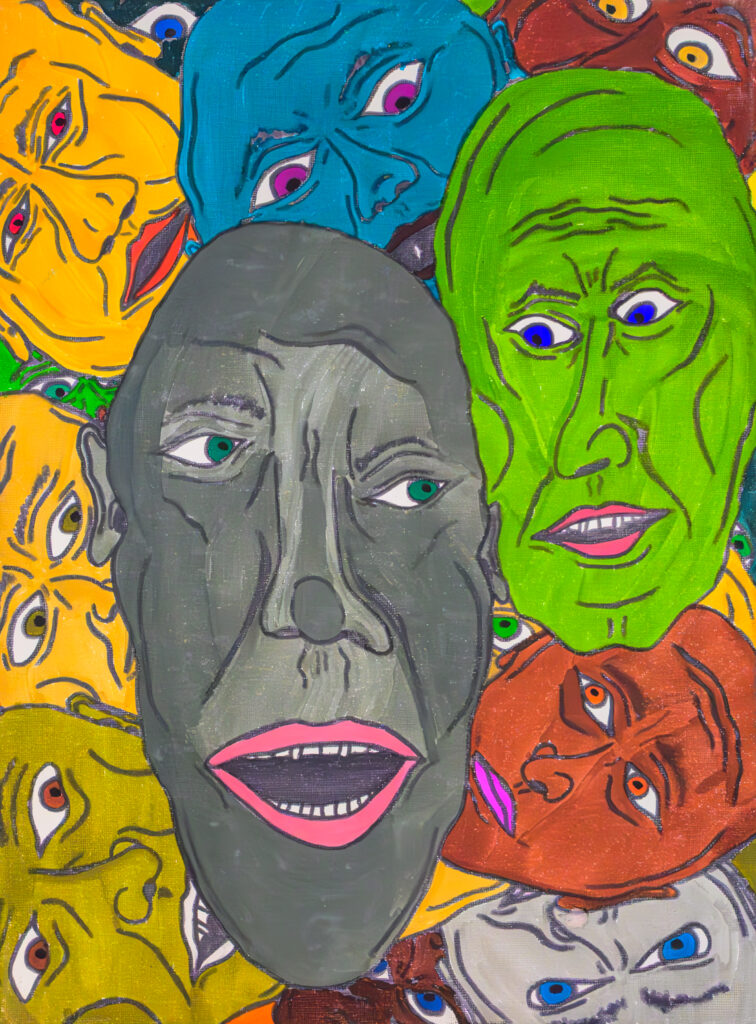
The Hurdles to Getting Help
Seeking answers should be the beginning of relief, but for many with narcolepsy and sleep disorders, it’s just the start of another exhausting battle. Instead of validation, ‘patients’ which I prefer to call ‘people,’ often face relentless skepticism, regular dismissal, or an immediate assumption that their symptoms must boil down to something “simpler”—depression, anxiety, thyroid issues, poor sleep habits.
Even when the concerns are taken seriously, and are presented clearly, the recommended solutions often feel painfully shallow. “Try going to bed earlier.” “Reduce screen time before sleeping.” These suggestions might work for someone dealing with occasional sleep disturbances, but for those navigating conditions like hypersomnia or narcolepsy, they barely scratch the surface. It’s like handing someone drowning in deep water a pamphlet on how to float, or a life jacket which holds a brick.
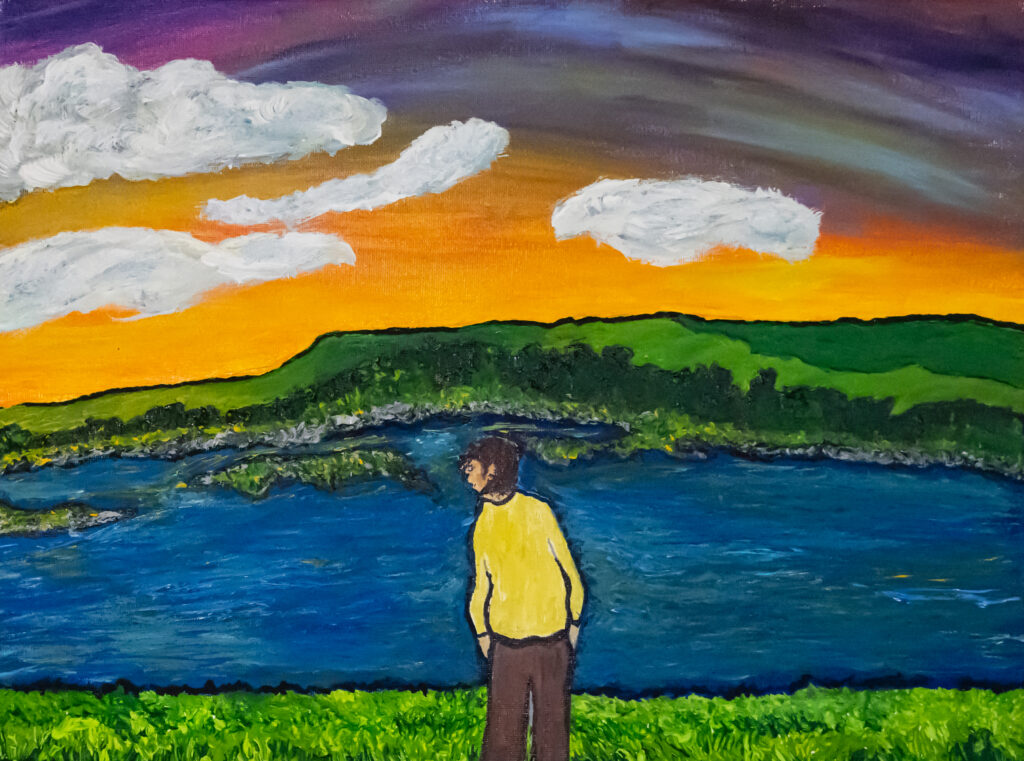
Medical Loops, Missteps, and a System That Doesn’t Listen
For many, pushing for proper testing—like a sleep study or a Multiple Sleep Latency Test—is a grueling uphill climb. And even when those uncomfortable tests happen, crucial details get overlooked. People aren’t always informed about medication restrictions beforehand, leading to compromised results that cast doubt on their diagnosis or force them to repeat tests under different conditions. Others who do get clear results are left with little more than a prescription for stimulant or other symptomatic-only medications—often the default, rather than an actual deep dive into how their symptoms manifest and interact with their body.
The real problem isn’t the science itself. It’s the rigid framework of the medical system—the way it prioritizes streamlined solutions, quick fixes, and profitable treatments over true comprehension. Medicine should be about understanding the individual, and their unique systems makeup, not forcing them into a predetermined mold. But too often, those with complex or invisible conditions are made to feel like the system is working against them rather than actually for them.

More Than Just Sleep: What Narcolepsy Actually Means
At its core, narcolepsy is misunderstood because even the medical world has long simplified it as merely a “sleep disorder.” But it’s more than that—it develops post an autoimmune attack, killing off the vital neuropeptide hypocretin, which regulates wakefulness, mood, metabolism, even the basic control over autonomic functions like heart rate and body temperature.
And yet, despite its systemic reach, it remains largely unseen and unknown, reduced to tired jokes about laziness and sleepiness rather than recognized for the life-altering condition it is.
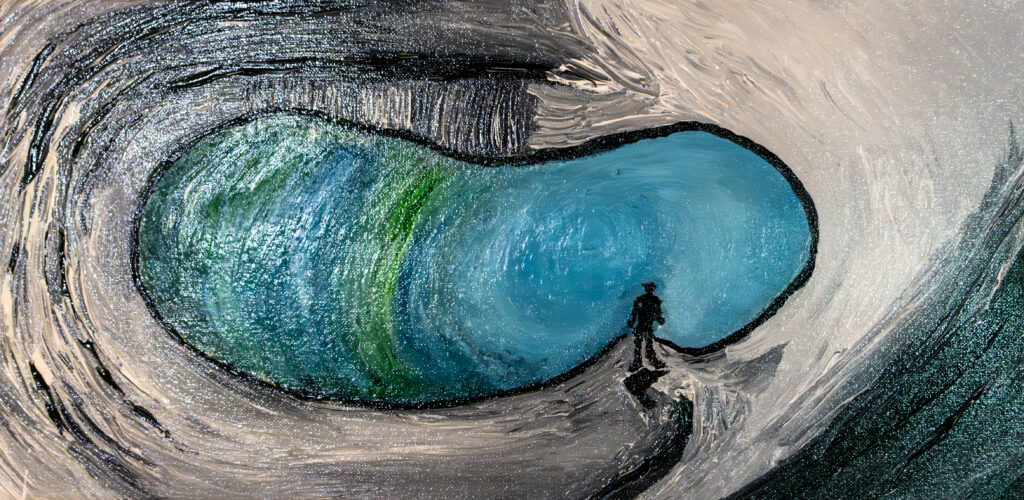
Reframing Care: Understanding the Bigger Picture
What’s missing is connection—the effort to truly map out a person’s lived reality, to recognize patterns beyond symptom checklists, to help them understand how their condition influences every aspect of their body and mind. If more emphasis was placed on understanding how all these dots connect—rather than just prescribing the most common treatment and moving on—people could adapt more effectively, find individualized strategies, and reclaim some control over their health.
But this requires a shift, one that challenges the priorities of a system where profit often dictates care. Until that happens, too many will remain lost in a loop of misdiagnosis, inadequate solutions, and frustrations, left feeling unheard in a world that doesn’t make space for their reality—or being presented with oversimplified, narrow terminology that may describe a single symptom but fails to acknowledge the deeper network of connections beneath it, but also across it. It’s like pointing out a single leaf while ignoring the tree and its roots—focusing on fragments instead of the full picture.
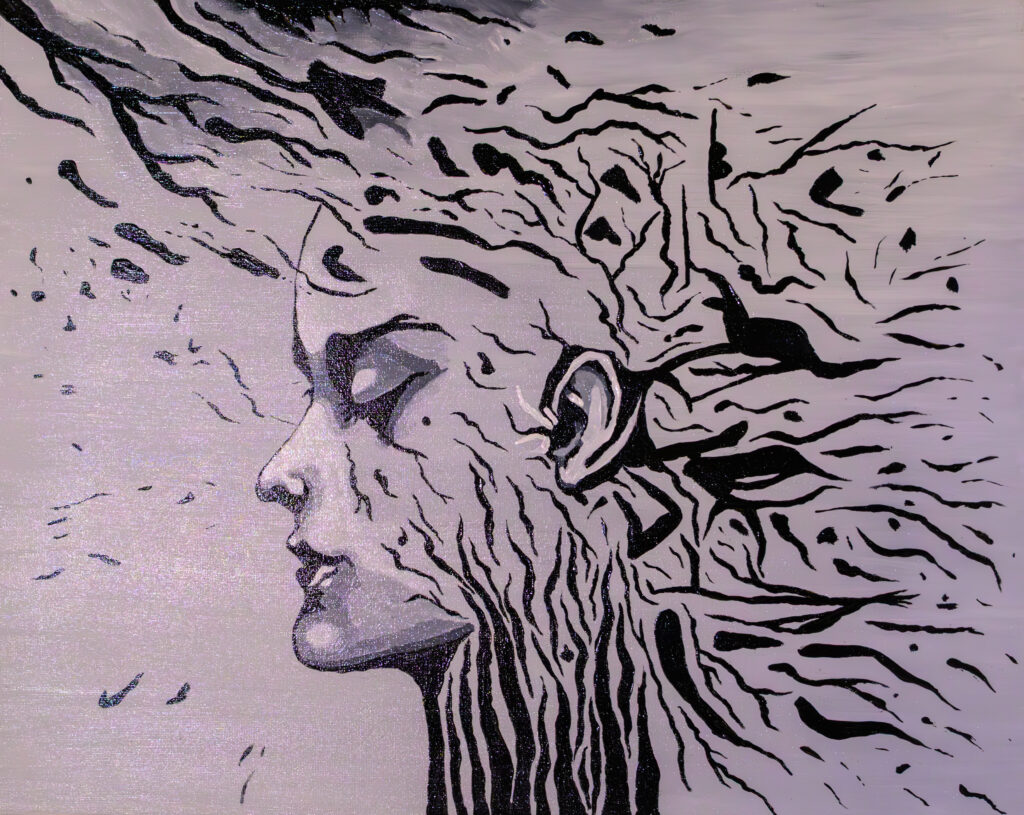
The Impact of Medical Framing on Perception
There’s even a division that comes from how conditions are presented and handled. Oversimplification, narrow classifications, and rigid medical terminology funnel people into specific boxes—boxes that may capture a fragment of their experience but fail to represent the full scope. And because of this, many resist broadening their perspective, holding tightly to how their condition has been framed rather than exploring its deeper, interconnected effects. Closing off rather than opening up, to others who may be in the same, or close to, box.
What we are presented with—be it in textbooks, medical discussions, or even casual conversations—directs how we understand ourselves. If narcolepsy continues to be framed as just a sleep disorder, then those living with it remain trapped within that limited definition, despite its systemic effects being more akin to diseases like diabetes—impacting metabolism, neurological function, autoimmune processes, and virtually every aspect of daily life. Until these perspectives shift, people will continue navigating not only the barriers of their condition but also the rigid boundaries imposed upon them by the very system meant to help them.

A Call for Change
Real change requires more than just medical awareness—it demands a shift in how support is structured. Beyond better research, better treatment, and better public understanding, there’s a dire need for independent organizations that offer actual clarity and guidance. Ones that aren’t controlled by pharmaceutical profits but instead focus on helping people adapt, understand, and truly live within the framework of the world as it is. Because without them, even more people will continue falling through the cracks, misdiagnosed, dismissed, and left navigating their struggles alone.
So how do we move forward? With conversations, with education, with a push for systemic change that allows people with invisible illnesses the same opportunities to thrive. Because I, and so many others like me, are tired—but not in the way you think. We are tired of navigating a world that refuses to see us.
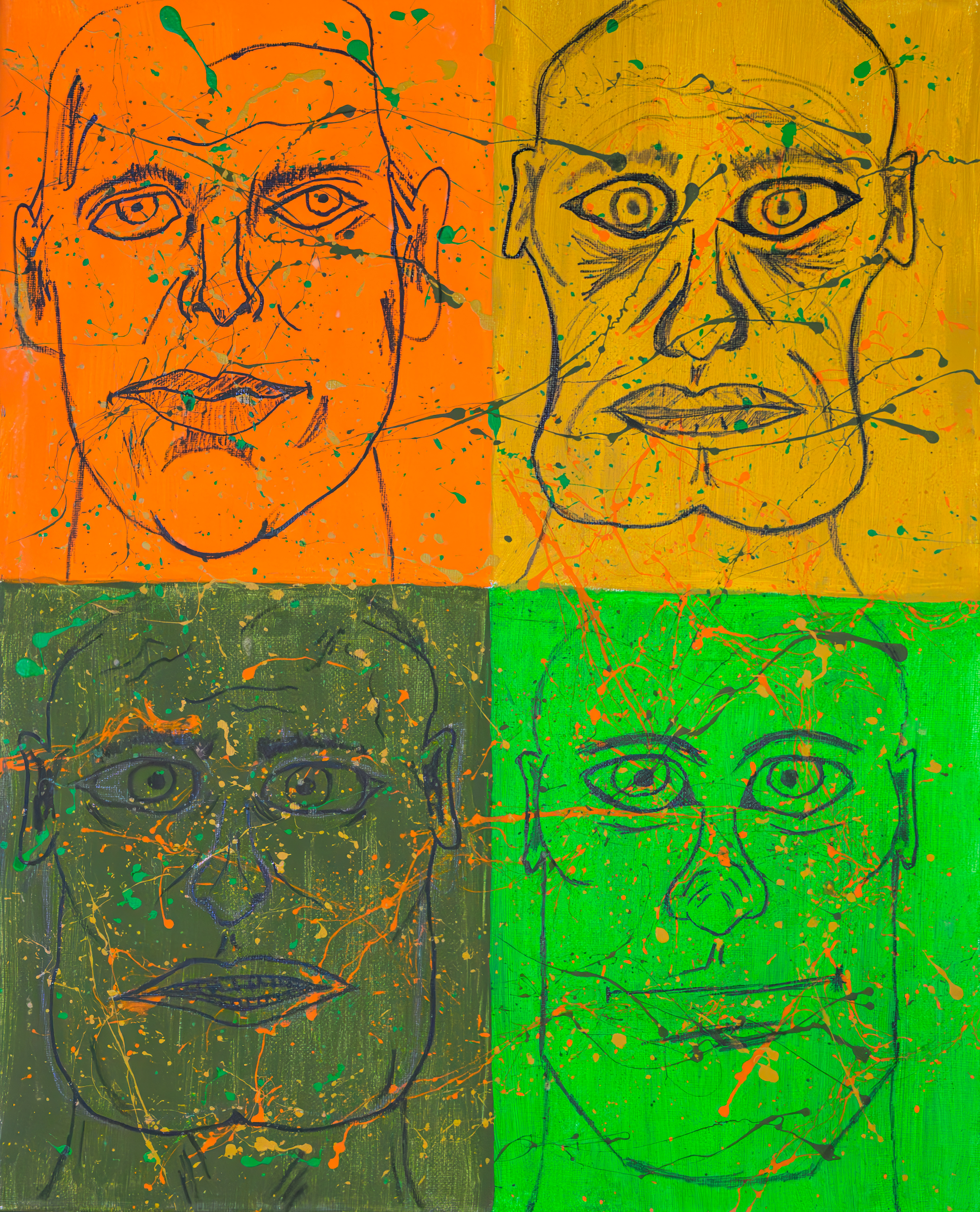
Created by: Solomon Briggs (aka Narcoplexic)
April 16th, 2025
